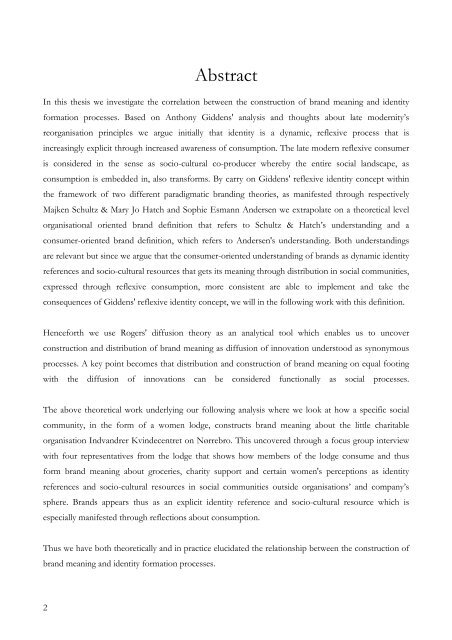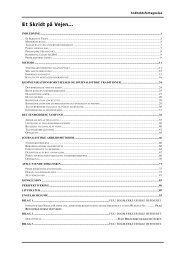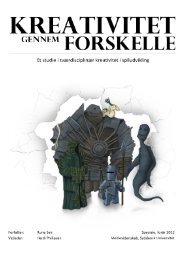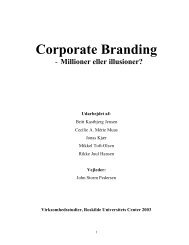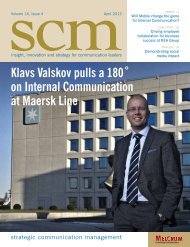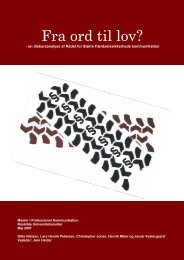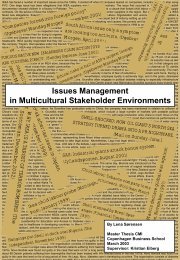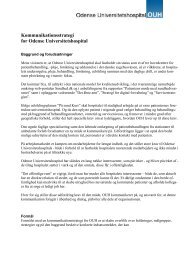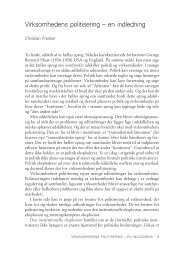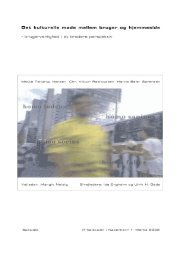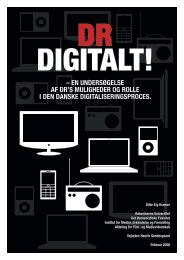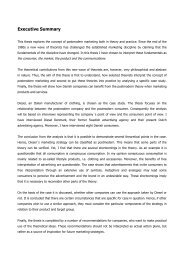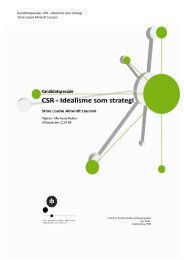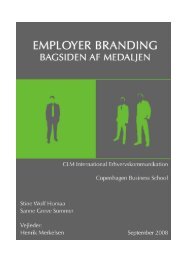Untitled - Kommunikationsforum
Untitled - Kommunikationsforum
Untitled - Kommunikationsforum
Create successful ePaper yourself
Turn your PDF publications into a flip-book with our unique Google optimized e-Paper software.
2<br />
Abstract<br />
In this thesis we investigate the correlation between the construction of brand meaning and identity<br />
formation processes. Based on Anthony Giddens' analysis and thoughts about late modernity’s<br />
reorganisation principles we argue initially that identity is a dynamic, reflexive process that is<br />
increasingly explicit through increased awareness of consumption. The late modern reflexive consumer<br />
is considered in the sense as socio-cultural co-producer whereby the entire social landscape, as<br />
consumption is embedded in, also transforms. By carry on Giddens' reflexive identity concept within<br />
the framework of two different paradigmatic branding theories, as manifested through respectively<br />
Majken Schultz & Mary Jo Hatch and Sophie Esmann Andersen we extrapolate on a theoretical level<br />
organisational oriented brand definition that refers to Schultz & Hatch’s understanding and a<br />
consumer-oriented brand definition, which refers to Andersen's understanding. Both understandings<br />
are relevant but since we argue that the consumer-oriented understanding of brands as dynamic identity<br />
references and socio-cultural resources that gets its meaning through distribution in social communities,<br />
expressed through reflexive consumption, more consistent are able to implement and take the<br />
consequences of Giddens' reflexive identity concept, we will in the following work with this definition.<br />
Henceforth we use Rogers' diffusion theory as an analytical tool which enables us to uncover<br />
construction and distribution of brand meaning as diffusion of innovation understood as synonymous<br />
processes. A key point becomes that distribution and construction of brand meaning on equal footing<br />
with the diffusion of innovations can be considered functionally as social processes.<br />
The above theoretical work underlying our following analysis where we look at how a specific social<br />
community, in the form of a women lodge, constructs brand meaning about the little charitable<br />
organisation Indvandrer Kvindecentret on Nørrebro. This uncovered through a focus group interview<br />
with four representatives from the lodge that shows how members of the lodge consume and thus<br />
form brand meaning about groceries, charity support and certain women's perceptions as identity<br />
references and socio-cultural resources in social communities outside organisations’ and company’s<br />
sphere. Brands appears thus as an explicit identity reference and socio-cultural resource which is<br />
especially manifested through reflections about consumption.<br />
Thus we have both theoretically and in practice elucidated the relationship between the construction of<br />
brand meaning and identity formation processes.


